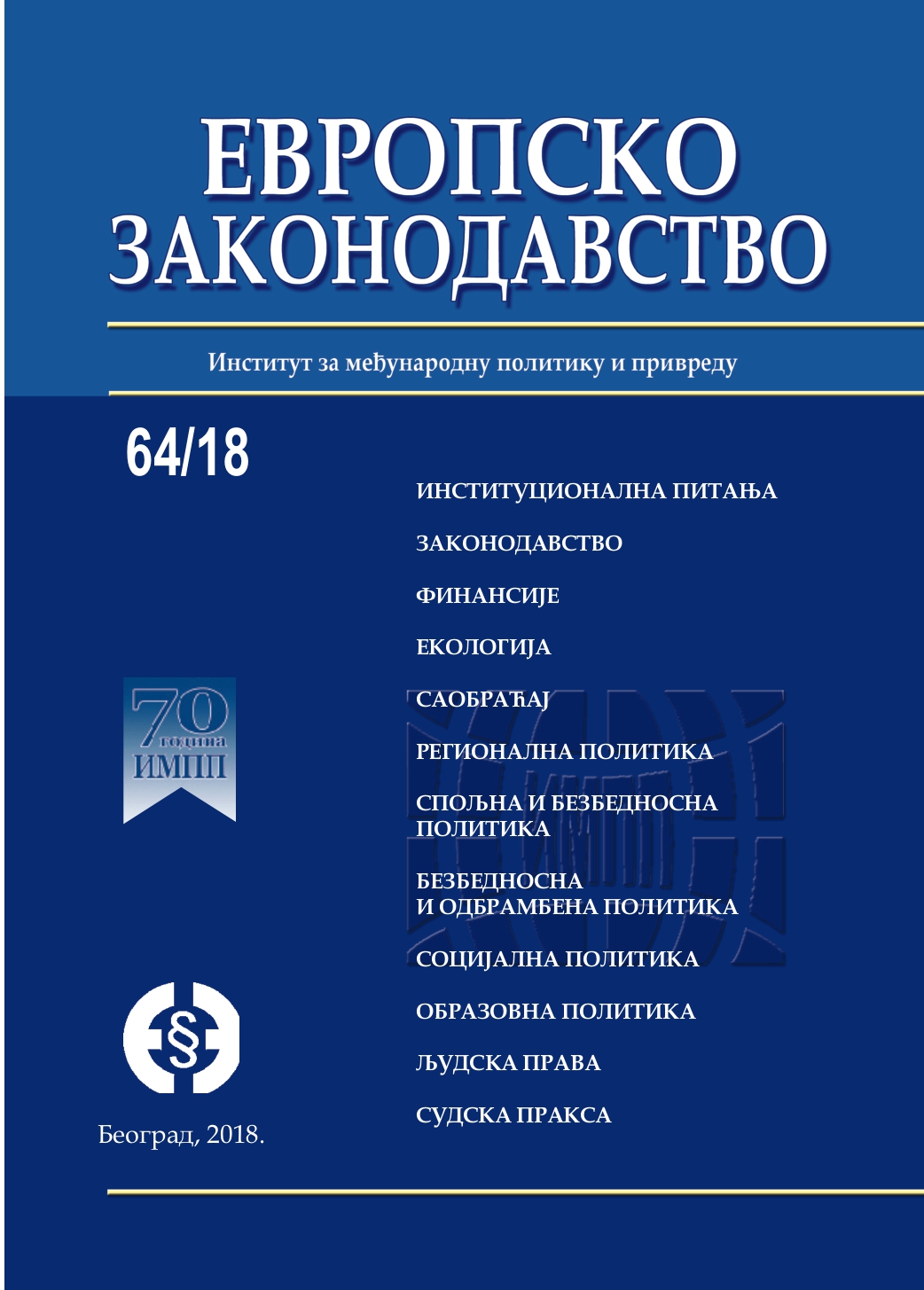Прекогранична сарадња као део развојне политике Европске уније
Cross-border cooperation as part of the European Union's development policy
Author(s): Dijana Savić BožićSubject(s): EU-Legislation
Published by: Институт за међународну политику и привреду
Keywords: cross-border program;European Union;Serbia
Summary/Abstract: Cross-border cooperation is strongly supported by the European Parliament and the Committee of the Regions. These two institutions have specifically pointed out that it is necessary to better understand the institutions of the central governments of the countries of the Western Balkans, as well as other European circles, with the significance of cross-border cooperation. In the future, the transfer of responsibilities from central government institutions to local authorities will be a particular challenge in the planning and implementation of cross-border cooperation programs. In the process of selection of projects, the role of joint supervisory boards must be strengthened, and a greater number of representatives of local authorities should be included in their work. Cross-border cooperation, by definition, requires the harmonization of financial rules (between countries and programs) and a greater degree of coordination between national authorities and the Directorate and Commission departments, and this must be one of the key issues of the future development of cross-border cooperation. It can also be expected that it will continue to simplify programming and implementation regulations. This will be achieved through greater harmonization with the rules of the Structural Funds. With all this in mind, we can conclude that the use of these funds can bring numerous benefits to the country. First, it refers to significant means for maintaining infrastructure, protecting and preserving cultural monuments, as well as the environment, and encouraging sustainable economic development. Intensive development of cross-border cooperation is essential in order to most effectively use a wide range of development opportunities on both sides of borders in Europe, as well as the potential for solving the common problems. In this way, regions would be mutually better connected and could take over the function of drivers of further European integration and sustainable neighbouring areas on the outer borders of the European Union. Cross-border cooperation, therefore, is the first and most important task and a political objective of the European Union, which needs to be implemented at the regional and local level and in partnership with national authorities. Integration effects of Serbia's accession to the European Union in terms of regional development are multiple, significant and confirmed, direct and indirect, and regionally uneven. They have economic, demographic, social, infrastructural and human dimension. This is confirmed not only by the experience of all transition economies that are now EU members, but also by our regional experience with the projects over the past transition period.
Journal: Европско законодавство
- Issue Year: 2018
- Issue No: 64
- Page Range: 124-136
- Page Count: 13
- Language: Serbian

